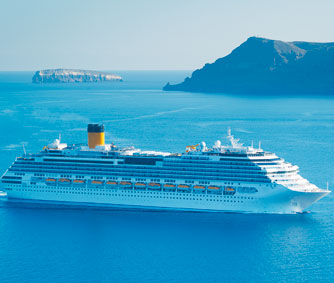Travel Advice: Happy Trails
 Plan well, book early, and have a great time! There is absolutely no reason why people with health or disability needs and their families can’t travel safely, and have fantastic holidays.
Plan well, book early, and have a great time! There is absolutely no reason why people with health or disability needs and their families can’t travel safely, and have fantastic holidays.
It’s important, though, to make your travel agent aware of any extra needs right from the start.
Most airlines can support disabled passengers as long as they have organised a ‘Medif’ (a medical form completed by a GP and/or specialist, which describes the disability or health requirement, and what help is needed prior to, during, and after the flight).
All substantial cruise ships also have disabled facilities. They have elevators, ramps, special wheelchair access cabins and shower facilities. (It is only the smaller ships that do not have elevators, and would not be suitable for wheelchairs.) Bigger ships also have doctors and on-board hospitals.
If you want to try a cruise, you will need a Medif.
The most important aspect of planning a cruise holiday if you have extra needs is to book early, as ships have a limited number of accessible cabins.
Larger hotel chains also cater for people with disabilities. They don’t typically have medical facilities, but will have doctors either on call or on the premises.
Some travel companies specialise in touring and adventure holidays for people with disabilities. They will usually operate with a group of four or more and tailor trips for particular needs.
Skydiving, scuba diving and safari trips are all accessible with the right planning and support.
Group departures are available for holiday locations such as Australia, the Pacific Islands, South Africa, India, Asia, Europe, and North and South America.
The vehicles used for these tours are accessible for wheelchairs, and staffed by trained support people. Costs are higher than for a standard tour because of the special supports and equipment provided.
Travel insurance is a must, and tour companies will require a medical certificate.
Depending on the type of disability or health needs, medications being taken, and/or pre-existing conditions, you may have to agree to an excess (which can be bought out or substantially reduced for an extra premium).
Wheelchairs and other equipment are covered by travel insurance, but if they are worth over $5,000, then an insurer would require a market valuation and apply an excess to your policy.
Gold credit cards offer free travel insurance, but beware, as policies often do not cover pre-existing health conditions.
The worst thing a would-be traveller can do is not tell their agent of any important needs. This might lead to problems while you are away.
If you as a carer are the one who falls ill or has an injury while you are away, your insurer will do whatever is necessary to support you, and get you all home safely.
Not booking travel insurance for overseas travel is a bad idea for anyone, not just those with health or disability needs. It is your ‘peace of mind’!
Don’t ever leave bags unattended at airports, where theft is a problem worldwide.
What if your bags were stolen, including important medications and health documentation?
If you need to leave the person you are accompanying, ask ground staff for help. They will be happy to give this support.
This helpful article was written by Trixie Newton who has operated her Kerikeri travel agency since 1976. She cared for her husband Tom until his death several years ago.